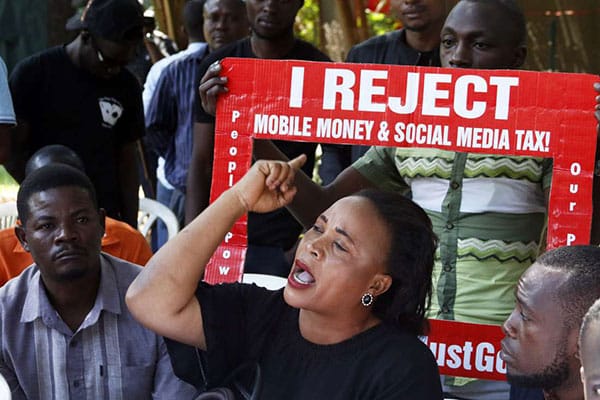In July 2018, the Ugandan government joined the bandwagon of African nations that have imposed tax on citizens for using the Internet. Internet users in the East African country were forced to pay Ush200 ($0.05) as a daily tax for using social media platforms, instant messaging apps and other over-the-top (OTT) services.
According to President Yoweri Museveni of Uganda, “social media chatting is a luxury by those who are enjoying themselves or those who are malicious.”
Apparently, the tax on the supposed luxury and malicious services is already taking a toll on Internet users in the country, thereby negatively affecting digital inclusion in the country.
The Uganda Communications Commission (UCC), through a twitter thread, recently shared statistics about the industry for the third quarter of 2018. Apparently, the Ugandan government realised Ush5.6 billion (about US $1.5 million) as revenue from OTT tax in July 2018. The figure dropped to Ush4.1 billion (about US $1.1 million) in August before taking a deeper dive to Ush3.97 billion (about US $1.1 million) in September.
#REPORT #CommunicationSector
THIRD QUARTER COMMUNICATION INDUSTRY REPORT 2018
Take a look at Uganda’s Communications Sector at a Glance
Mobile subscriptions rebounded with a growth of approximately 7% in the period June to September 2018. pic.twitter.com/uxgGfqGX5o— UCC (@UCC_Official) January 25, 2019
Tax revenue is not the only one that took a hit, internet subscriptions also declined by 15% and 0.39% in August and September respectively. The number of OTT taxpayers also reduced by 1.2 million in two months.
Evidently, the social media tax is driving Ugandans off the Internet. This means Internet service providers (ISPs) will witness a decline in revenue and consequently lead to lower tax on the part of the ISPs to the government.
Suggested Read: African governments are strong-arming social media, there will be economic casualties
Do note that the Ugandan government also introduced a mobile money tax in 2018 as well and just as with the social media tax, there’s also a negative effect on the mobile money market.
The value of mobile money transactions dropped from Ush19.3 trillion (about US $5.3 billion) in July 2018 to Ush14.8 trillion (about US $4.1 billion) in September of the same year. UCC cited in a tweet that the decline in the value of transactions was partly due to the introduced mobile money tax.
On the contrary, the volume of transactions increased by approximately 50% which means that the increasing volume of transactions is not reflecting on transactions value.
On the bright side, mobile money customers’ balances grew by 141%. In a way, the mobile money tax is discouraging transactions while encouraging saving.
In some ways, tax on the usage of social media will curtail the spread of fake news but as Research Officer at Paradigm Initiative Nigeria (PIN), Babatunde Okunoye puts it, “Social media can be used to incite violence, but so can radio, television and print media. There’s an acceptable level of regulation where the government monitors social media but leaves the platforms to deal with misconduct”.
The decline in the number of Internet users and the negative effects on government and ISPs’ revenue as well as digital inclusion drive in Uganda should serve as a point of reference to other African countries that have either introduced a social media tax or are making plans to put it in place.
Photo Credit: Morgan Mbabazi (National Media Group).










